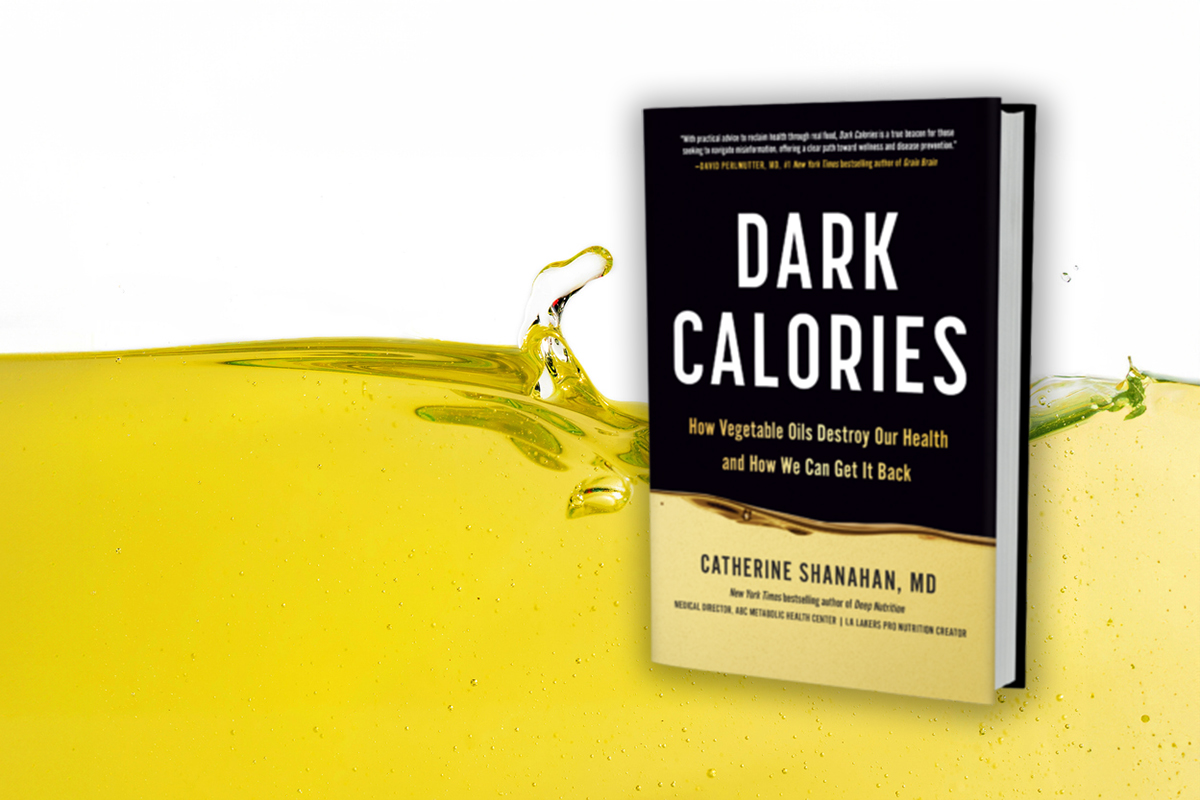In an era where health consciousness pervades every aspect of our lives, the quest to understand how our dietary habits shape our well-being has never been more critical. Among the myriad of lifestyle changes and dietary fads, one persistent observation has emerged: the increasingly prevalent use of vegetable oils in our diets. These oils, often advertised as heart-healthy alternatives, have drawn a significant amount of scrutiny. The book “Dark Calories: How Vegetable Oils Destroy Our Health” delves into this contentious subject matter with an analytical lens, unraveling the layers of complexity behind our obsession with these oils.
The title itself, “Dark Calories,” evokes intrigue. It suggests a duality – while vegetable oils were once heralded as a modern solution to dietary fat, this book poses the provocative question: Are they concealing a perilous truth? The author initiates a captivating dialogue that interrogates the widespread acceptance of vegetable oils, demanding readers to reconsider their culinary choices with a discerning eye.
At the heart of the discourse is the alarming rise in chronic diseases over the past few decades, a rise that correlates with the uptick in vegetable oil consumption. The author meticulously documents how these oils, often sourced from soy, corn, and canola, have infiltrated our food supply, becoming ubiquitous in processed foods. This infiltration prompts a pivotal inquiry: are we not merely consuming oil, but rather ingesting a cocktail of adverse health implications? This book urges readers to grasp that the calories we consume, particularly those derived from these oils, may not be as innocuous as they seem.
One of the book’s most striking examinations is the biochemical impact of vegetable oils. The author illustrates the intricate dance of omega-3 and omega-6 fatty acids within our bodies. Ideally, a harmony exists where these fatty acids contribute positively to our health. However, the excessive infusion of omega-6 – primarily derived from vegetable oils – disrupts this balance, resulting in a predisposition to inflammation, cardiovascular maladies, and various metabolic disorders. This analysis is profound, revealing the insidious nature of these oils in sabotaging health beyond mere caloric content.
In tandem with its scientific exploration, “Dark Calories” adeptly unearths the socio-economic factors that have contributed to the proliferation of vegetable oils. A notable theme is the intersection between agriculture and health policies. The book asserts that large agricultural interests have collectively perpetuated a narrative that positions vegetable oils as desirable, profitable staples. The marketing strategies deployed suggest that these oils are virtuous, yet the author intricately reveals their deleterious ramifications. This connection prompts readers to contemplate deeper questions regarding food politics: Who truly benefits from our reliance on these oils?
Moreover, the historical context provided in the book enriches the narrative. The author draws parallels between the industrial revolution and the rise of processed foods, illustrating how technological advancements, rather than nutritional science, dictated dietary choices. This observation highlights a critical inquiry into why society remains entranced by convenience over quality. “Dark Calories” skillfully invites introspection about our relationship with food, urging us to recognize the consequences of our choices.
As the author unpacks the nefarious attributes of vegetable oils, there arises a sense of urgency concerning the need for dietary reform. Each chapter builds upon the last, crafting a compelling case for a paradigm shift towards healthier alternatives such as olive oil, coconut oil, and even butter. These substitutes are not merely nostalgic relics of the past, but are positioned as viable avenues toward reclaiming our health. “Dark Calories” thus acts as a clarion call to prioritize awareness in our culinary endeavors, compelling readers to pursue better choices for their well-being.
But the book does more than critique; it offers solutions, presenting readers with practical strategies to diminish their reliance on vegetable oils. Recipes replete with unrefined fats enlighten readers not only on distinct flavors but also on healthier dietary practices. This feature is a delightful encapsulation of the book’s philosophy: one can enjoy culinary diversity without succumbing to detrimental health practices. At the intersection of information and empowerment, the author adeptly guides readers toward reclaiming their culinary autonomy.
Yet, despite its compelling arguments, “Dark Calories” does spar with a multitude of societal norms. The ingrained habits surrounding food consumption compel many to defend their preferences fervently. The book acknowledges this reluctance, yet it challenges readers to confront uncomfortable truths. By dissecting the manipulative marketing and misconstrued nutritional guidelines, it ignites a passion for reevaluation that is both stimulating and vital. The call to action resonates long after the final page, encouraging readers to become thoughtful stewards of their health.
Ultimately, “Dark Calories” serves not only as a critique of vegetable oils but as a profound exploration of the broader implications of dietary choices in a modern context. Through its analytical approach, it captures the complexities behind what we eat while fostering a greater awareness of the ingredients that comprise our meals. As readers journey through its pages, they are urged to embrace their role in a movement toward healthier lifestyles and, consequently, a healthier society. In its conclusion, the book doesn’t merely provide an indictment of dietary practices but rather a path forward, a way to liberate ourselves from the constraints of ignorance and embrace the potential for genuine health transformation.
